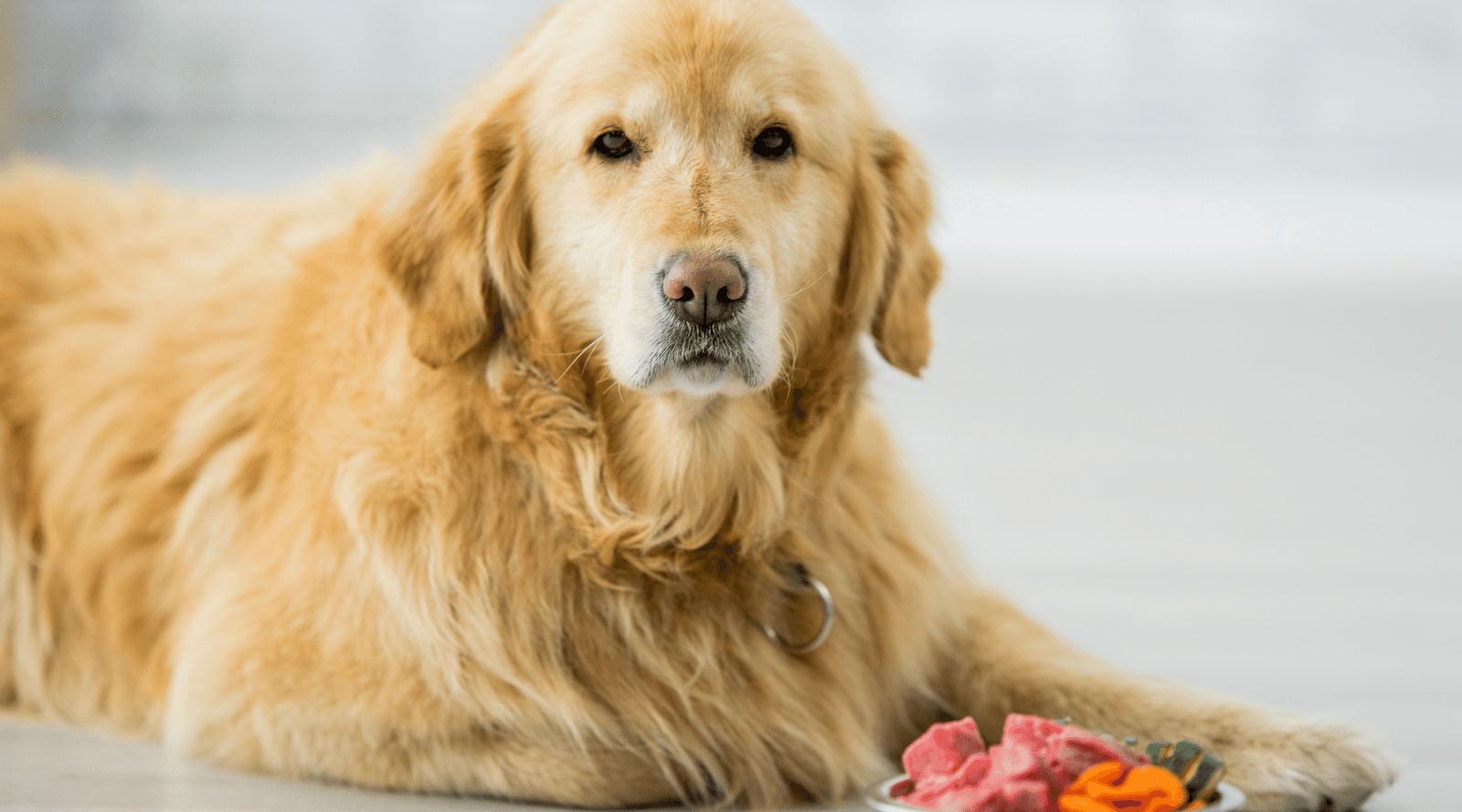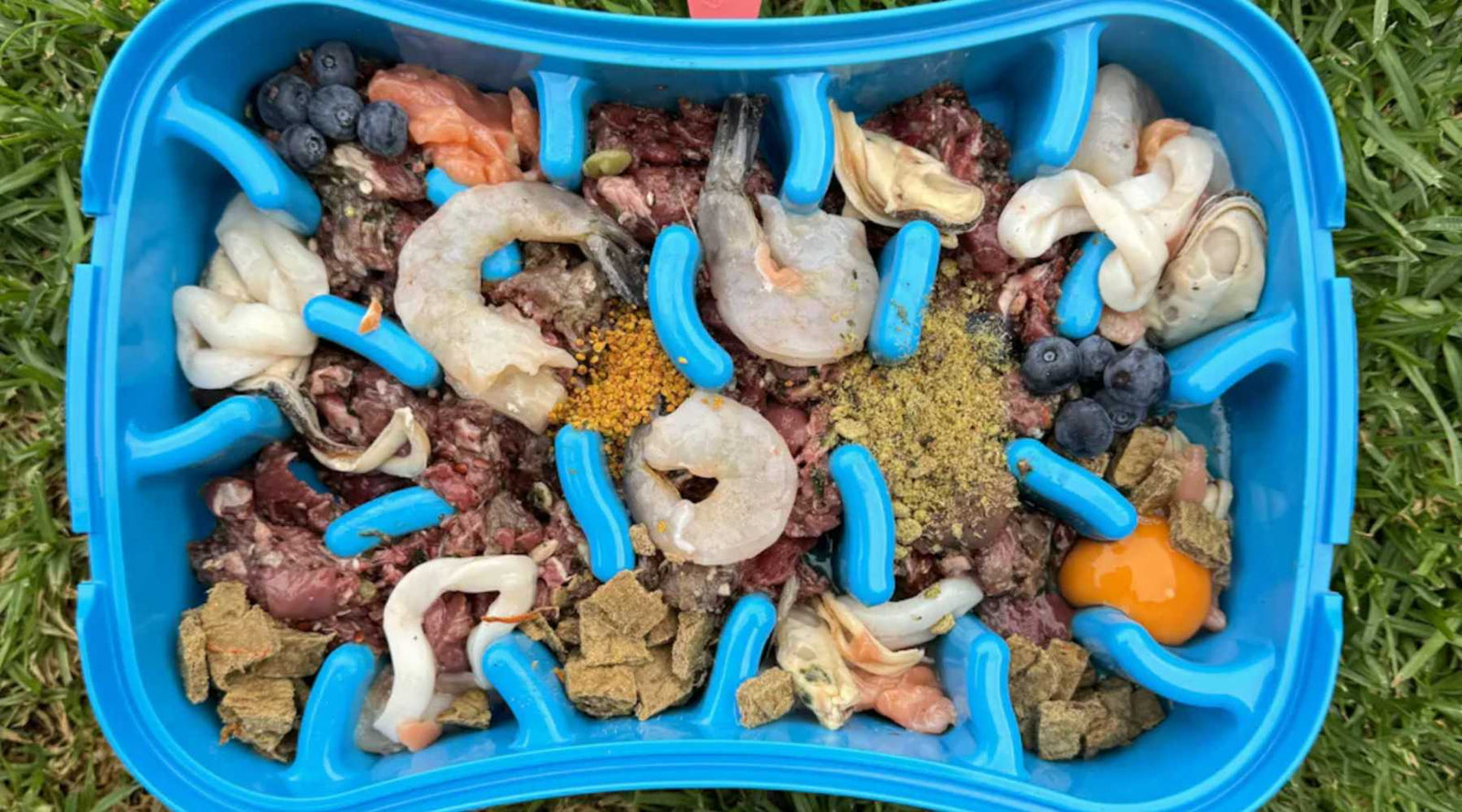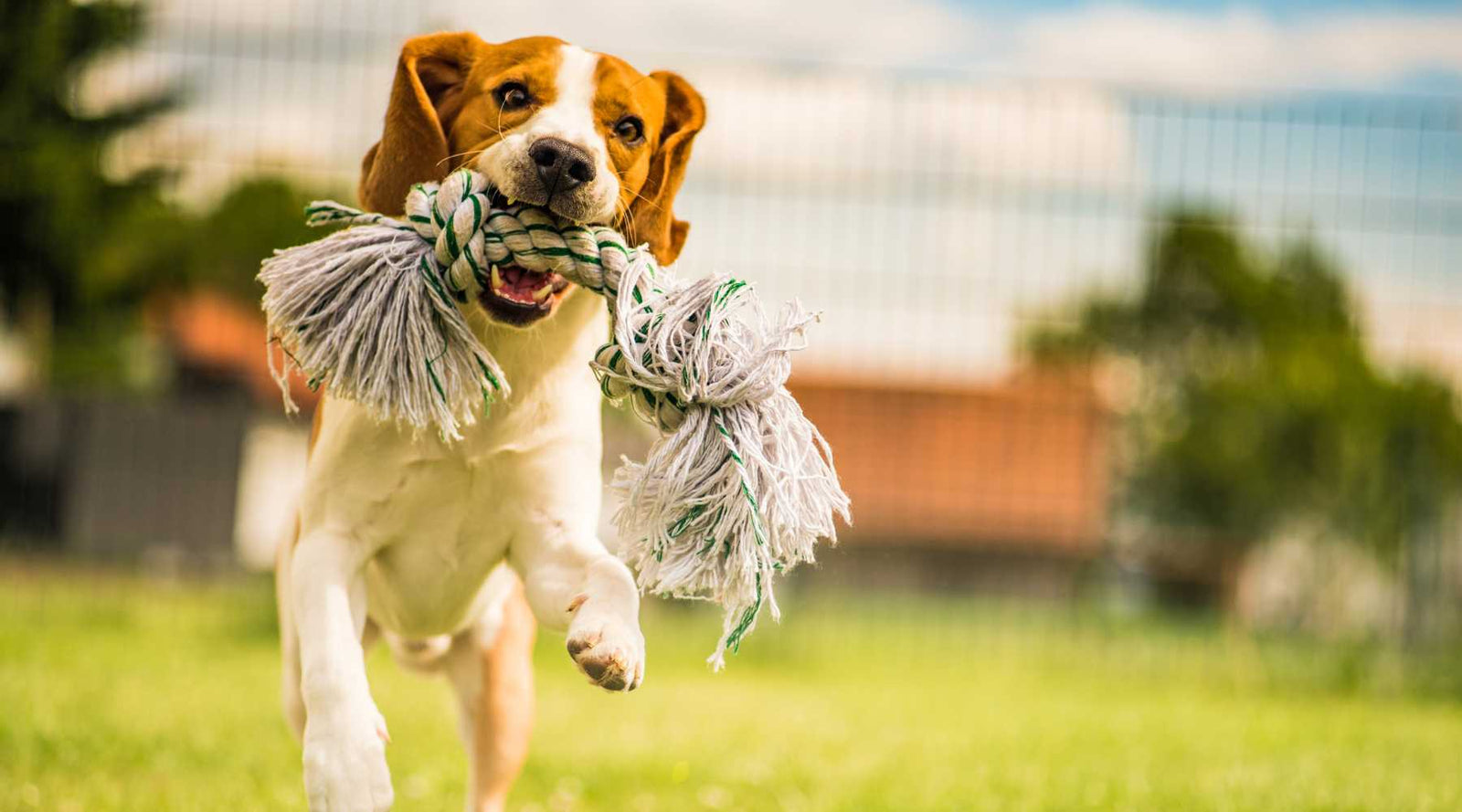As a pet parent with a senior dog, some common health problems in older dogs might affect yours one day.
In spite of their true age, your dog can become a senior dog when they begin to show signs of age-related health issues.
Ten common health problems in senior dogs include deafness and blindness caused by tissue degeneration in the eyes and ears.
A regular wellness check every six months is the best thing you can do for your aging pup to ensure he is free of these common health issues and lives a healthy life.
Watch out for changes in behaviour. As dog's age, they become less active, eat less, and lose interest in things like playing fetch. They may even start sleeping longer hours during the day. If you notice changes in your dog's behaviour, it could mean he needs some extra attention.
Blood and urine tests are an essential part of regular checks. A veterinarian will test blood samples for specific health conditions such as heart disease, kidney problems, liver disease, diabetes, thyroid issues, and parasites. They will also collect urine samples to examine for signs of bladder infections, urinary tract infections, crystals, or stones.
Some diseases can be prevented through vaccinations. Vaccinations help protect against serious illnesses, reduce the risk of infection, and save money. Many vaccines are available for dogs, including rabies, distemper, parvovirus, hepatitis, adenovirus, leptospirosis, Lyme disease, bordetella, and others.
Feeding Your Pet Well Will Keep Them Healthy For Longer

A healthy diet is essential for keeping pets happy and healthy. But what about feeding your dog or cat properly? A recent study found that feeding senior dogs special foods could help them live up to 10% longer. Researchers at the University of California, Davis, studied how older dogs fared when fed specific diets. They discovered that feeding older dogs, a high protein diet increased their lifespan by around 5%. This study was published in the journal PLOS One.
Senior dogs often require different food than younger ones. Older dogs tend to lose weight due to decreased activity levels, while younger dogs are typically growing rapidly. Here are some tips to ensure you're providing the best nutrition possible for your furry friend.
Special Diets Can Be Prescribed for Certain Conditions
Certain diseases affect the way your dog eats. If your dog suffers from arthritis, it's essential to provide him with a diet rich in omega-3 fatty acids. Dogs suffering from cancer have been shown to benefit from a low carbohydrate diet. And those with diabetes might want to avoid sugar altogether.
Check With Your Vet First
There are many reasons why a dog might eat less, including illness, stress, boredom, or even age. Sometimes a change in diet is necessary to correct a problem. If you notice your dog losing weight, or eating less than usual, consult your vet immediately.
Dental Disease

Your dog needs a good brushing every day. But what about those teeth? Like most pet owners, you probably brush your dog's teeth once a week or less often. And while it might seem easy enough to do, there are some things you should know about how to clean your pets' teeth properly.
Dental disease can lead to serious health issues such as heart disease, kidney failure, arthritis, diabetes, cancer, and more. In fact, according to the American Veterinary Medical Association, 80% of pets over ten years old suffer from periodontal disease. This is because bacteria can build up under the gumline and around the roots of the tooth, causing inflammation and infection.
The best way to prevent dental disease is regular oral hygiene. Brushing your pet's teeth twice per week is recommended. You can use a soft bristle brush or even a special toothbrush designed just for pets. Follow the manufacturer's instructions for cleaning your pet's teeth. You can find information online about different types of brushes and how to choose one that works well for your pet.
If your pet does develop dental disease, we recommend taking them to our veterinary hospital. Our veterinarians can perform routine exams and x-rays to determine whether treatment is needed. They'll also provide recommendations for treating specific conditions.
We hope this helps answer some questions about dental care for your pet.
Blindness and hearing loss
Older dogs can suffer from varying degrees of deafness and blindness due to tissue degeneration in their eyes and ears. As dogs age, they become more likely to develop cataracts. This cloudy layer forms over the eye's lens, leading to partial or total blindness. While cataracts may be surgically removed, dogs are more likely to rely on their sense of smell to navigate their environment and often have little difficulty getting around without their vision. When hearing loss occurs due to aging, it generally becomes permanent. Taking care of your dog's ears regularly can help slow the progression of hearing loss as he ages.
Arthritis

Senior dogs often develop arthritis due to age-related wear and tear on their joints. This happens because older dogs tend to spend more time sitting around and less time moving around. As a result, their muscles lose strength and flexibility. They also become stiffer over time.
Arthritis causes pain and discomfort. One in five adult dogs suffers from osteoarthritis, a degenerative joint disease. Your dog may show signs such as limping, stiffness, soreness, reluctance to move, and even loss of appetite. Left untreated, it could lead to joint damage, muscle atrophy, and even heart disease.
There are many things you can try to ease your dog's symptoms. Here are some tips to consider:
• Exercise regularly. Dogs that exercise regularly are healthier overall. Regular walk runs, hikes, and play sessions keep your dog fit and active.
• Keep up with dental care. Brushing your dog's teeth twice a week helps prevent tartar buildup. Brush gently along the gum line and brush under his tongue.
• Feed a healthy diet. A balanced diet rich in protein keeps your dog lean and robust. Include high-quality meaty bones, vegetables, fruits, and grains.
• Provide plenty of water. Water is essential for keeping your dog hydrated. Make sure he gets enough water throughout the day.
Cancer in dogs
More than half of all dog owners say their pets live longer than expected, according to a recent survey conducted by VetDepot.com. Many people believe that because their pet is still alive, they must be healthy. However, several diseases affect both humans and animals. These include all forms of cancer, diabetes, heart problems, arthritis, kidney failure, and dementia.
There are many different types of cancer, including skin cancers, breast cancer, prostate cancer, lung cancer, liver cancer, colon cancer, bone cancer, blood cancers, brain tumours, lymphoma, leukemia, thyroid cancer, testicular cancer, ovarian cancer, uterine cancer, pancreatic cancer, bladder cancer, and others. Some of these conditions are easier to treat than others. For example, some cancers return quickly while others take much longer.
Treatment depends on the type of tumour and where it has spread. Surgery is often used to remove the tumour (s). If you suspect your pet has cancer, contact your veterinarian immediately. They will perform tests to determine whether your pet needs treatment. You can help by keeping track of your pet's health and providing regular checkups. Also, keep your pet up-to-date on vaccinations and flea control.
Senility in Dogs
A dog's brain is just as susceptible to aging as ours. As we age, our brains begin to shrink, causing changes in behaviour and cognition. These changes are called senile dementia in older people. In dogs, it's called senility.
In both cases, the symptoms include confusion, disorientation, loss of memory, lack of coordination and poor judgment. For some dogs, these problems start around three years old. Others show signs much earlier. Some breeds seem to be more prone to developing senility than others.
The good news is that many of the same treatments used to treat senile dementia in people work well in dogs too. There is even evidence that certain supplements help prevent the onset of senility in dogs.
Heart Disease
Heart disease is prevalent in old dogs and significantly larger breeds. Dogs have many different kinds of heart disease, including congenital defects, valvular diseases, cardiomyopathy, myocarditis, endocrine disorders, and others. Some of these conditions can cause sudden death, while others progress slowly over months or even years.
Early detection and treatment can help prevent severe complications and extend your dog's quality of life.
The American Kennel Club says obesity can complicate the treatment of heart disease, joint problems, and certain types of cancer.
Diabetes

As a result of diabetes, dogs experience increased thirst, increased urination, an increased appetite, and weight loss as the most common symptoms.
A diabetic dog often loses weight because it drinks too much water and eats too many calories. This causes the blood glucose level to rise, making the animal feel thirsty and hungry. If left untreated, diabetes can lead to serious health problems such as kidney failure, blindness, heart disease, stroke, nerve damage, and even death.
The pancreas makes insulin, a hormone that regulates sugar levels in the bloodstream. When a person develops type 2 diabetes, their pancreas stops producing enough insulin to control blood sugar. In addition, the cells become resistant to the effects of insulin.
Regular veterinarian monitoring will help determine whether your dog needs treatment. Your vet will check your pet's weight, appetite, urine output, and general well-being. Blood tests are used to measure the amount of sugar in the blood.
If your dog is diagnosed with diabetes, it will require regular insulin injections. Insulin lowers the blood sugar level and prevents dangerous complications.
Obesity
In the course of aging and becoming less active, a dog's weight gain can significantly impact his health. The American Kennel Club warns that obesity increases the risk of heart disease, joint problems, and certain types of cancer. Excess weight in older dogs makes them more susceptible to illnesses, such as diabetes. To guarantee your older dog gets the right amount of nutrition and calories, as well as exercise, it's essential to feed him age-appropriate meals.
Urinary Incontinence
Urinary incontinence is defined as involuntary urination outside the body. It occurs when muscles controlling the urinary tract are weak or damaged. In some cases, it can be caused by nerve damage due to injury or disease. There are many different types of incontinence, including stress incontinence, urge incontinence, overflow incontinence, and functional incontinence.
How to take care of your senior dog
Making your home safer and more comfortable for your pet depends on their challenges as they age. You can help your dog make the most of its older years as their companion. Be patient and give your pet time to adjust to their new normal.
Protect your pet from additional stress by creating a safe space in your home. Ensure your pet doesn't fall or trip on wires or other items on the floor. Ensure that fragile objects and plants are out of your dog's reach by moving them to a safe area.
As dog's age, they should have a consistent daily routine and undergo periodic veterinary exams and lab work to check for chronic diseases or other effects of aging. A sudden change in everyday life and stressful situations should be avoided.
When making drastic changes to an older pet's routine, introduce the change gradually to minimize stress.
Changing The Way Dogs Eat for Good!

As responsible pet parents, we know that you want to do everything to help. Living with a sick dog after a meal is no fun. Our two doggos, Marley and Belle, both like to eat fast! So we know exactly what it's like to live with a dog in pain and discomfort after eating.
We are introducing the Ultimate, Versatile 4-in-1 Slow Feeder Dog Bowl! We're excited this new slow feeder dog bowl combines modern design with innovative functionality. It's more than just a slow feeder. A slow feeder bowl that naturally slows your dog down at chow time, as well as a reversible lick mat so your pet can enjoy a variety of delicious foods like purees, stews, or wet food. An excellent bowl for easy delicious food prep and storage doubles as a dog-friendly travel bowl for your canine adventures.
Your dog will have a happier, healthier mealtime experience giving you peace of mind.



